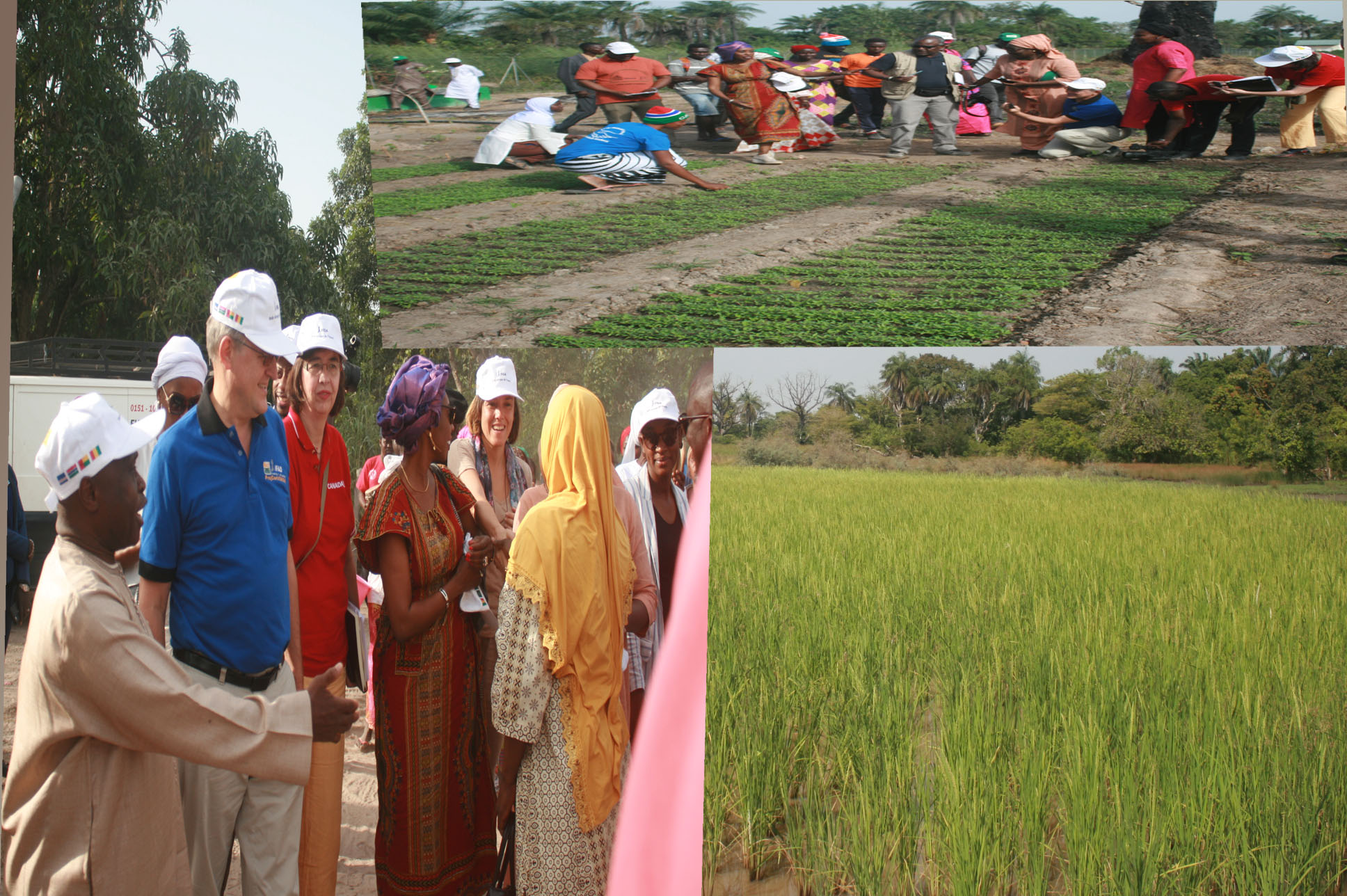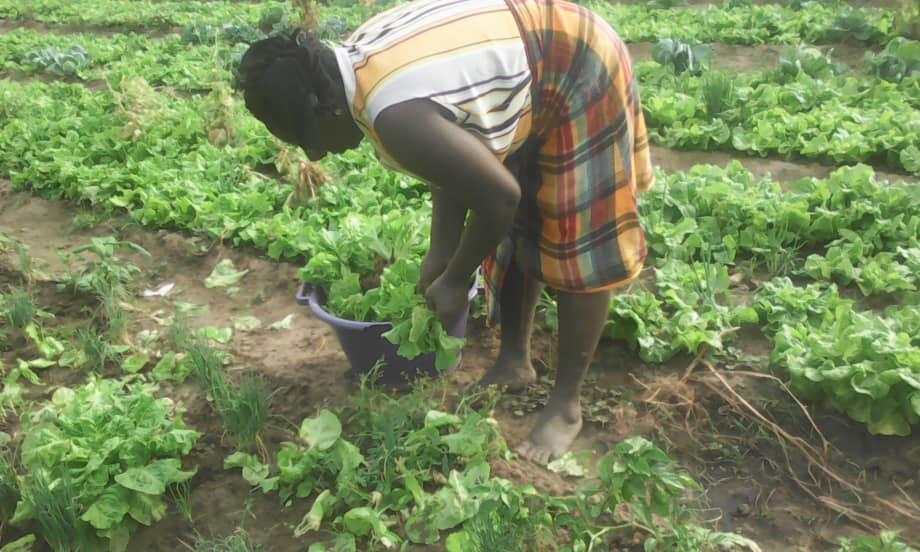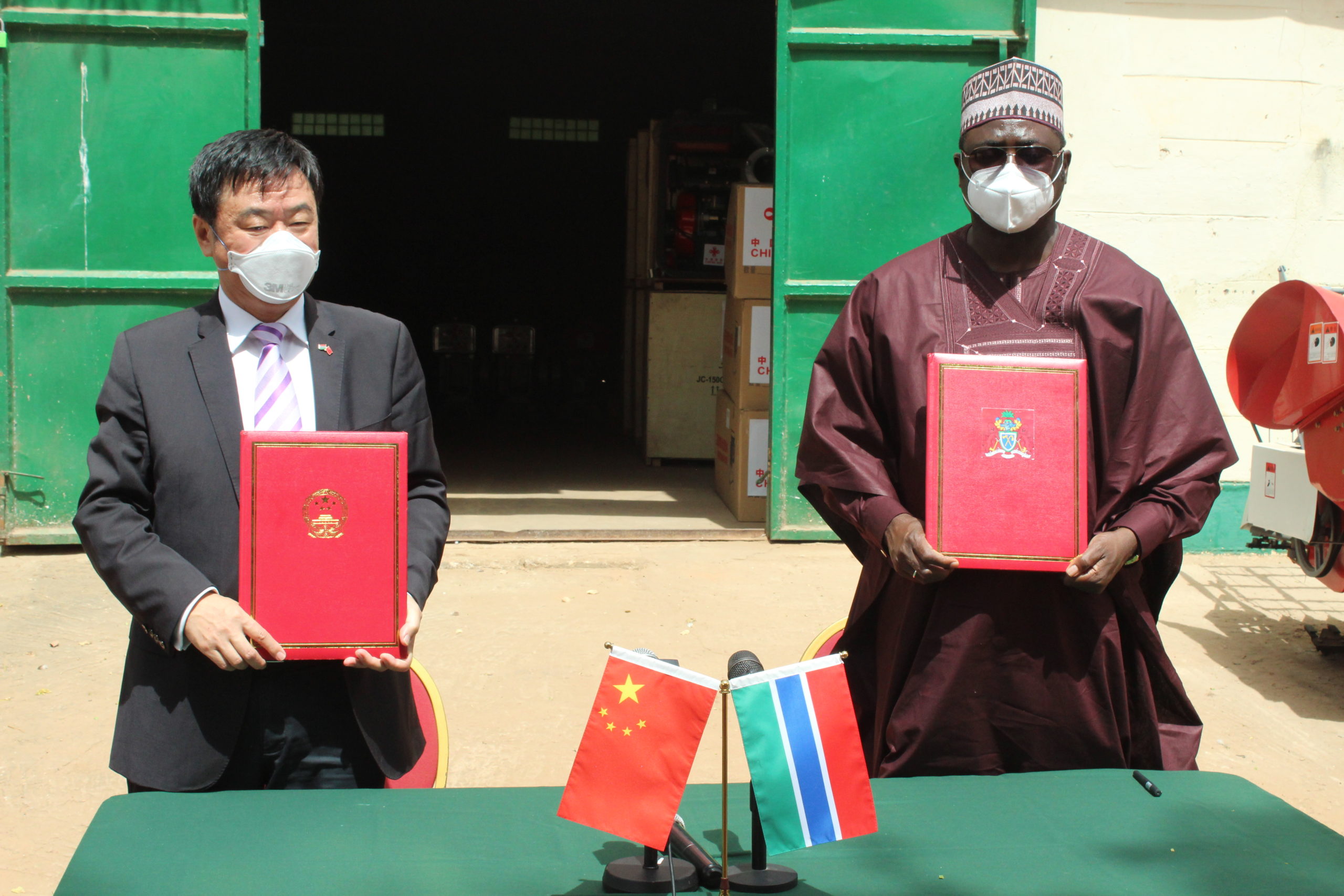By Yunus S Saliu
Some high powered delegation of the International Fund for Agricultural Development (IFAD) from Rome, Wednesday visited some selected intervention sites of the Project Support Unit (PSU) of National Agricultural Land and Water Management Development Project (Nema) in West Coast Region (WCR) and Lower River Region (LRR) – The Gambia.
The delegates which included Nicole Gesnot, Counselor (Development) Deputy Director and Chief of Operations of the Government of Canada, Silvia Bergamasco, AICS Italian Agency for Development Cooperation, Benoit Thierry, West Africa Hub Director, WCA Division – Program Management Department, Haua Sienta, Country Director for Mauritania and Gambia, West and Central Africa among others.
On arrival in The Gambia, Tuesday evening, the delegates briefly met the President of The Gambia His Excellency Adama Barrow, at Badibbu Saba , who was on his annual tour at Badibbu Saba, North Bank Region.
On the intervention sites, the IFAD delegates and officials of the National Agricultural Land and Water Management Development Project (Nema) joined by the Governor of West Coast Region among other VIPs visited the National Agricultural Land and Water Management Development Project (Nema) Darsilami Youth Garden in West Coast Region, Mangrove Restoration in Bondali Tenda Village, West Coast Region, Pakalinding Rice Field in Lower River Region and Kiang Nema Vegetable Garden, Lower River Region.
Taken the delegates on a conducted tour of the intervention sites, they were able to have firsthand information of each of the site in regard to the sizes, number of people/producers working in sites, number of female and male workers, youths, their produce, challenges, outcomes of each project among other things.
Also the delegates were able to get feedback from the beneficiaries as the projects benefit and improve their lives and communities, the importance of it to not just the community where the projects were centered but neighboring communities as well.
The delegates expressed satisfaction on the Nema Chosso projects, commended the beneficiaries for their hard works and as well encouraged them to make it a sustainable one especially that the project is about widening up.
The Project in Brief
Darsilami Youth Garden
It is a 5ha garden with galvanized chain-link perimeter fence with 1 solar powered borehole with 60,000 liters-overhead tank and pipe distribution network. Other facilities in the garden include drip irrigation system under pilot, 1 compost chamber with production capacity of 50-ton per harvest, AVIP formed/strengthened and operational among others.
At the garden, at least 250 producers (more than 5% young women) are benefitting from it which has increased income generation of more than GMD2.0 million ($40,000) last season.
Pakalinding Rice Field
Is 3.0km causeway and bridge to access the rice fields and the causeway and bridge has enhanced access to at least 350ha for at least 700 producers (87% women). With trainings provided by the project on the climate smart Agriculture and access to quality seed and fertilizer, producers’ yields are more than double from 1.5t/ha to 3.5/ha. Also the 3km access road to rice field has enhanced evacuation of harvests from the rice fields to their homes, thus contributing to reduced post-harvest loss.
Bondali Tenda Mangrove Restoration
The area is 35.0ha under mangrove restoration program supported with a out-boat engine for collection and transportation to area underdevelopment.
Among its outcome is the ecosystem restoration progressively evolving and temperatures cooling off that making dwellers happier, the biodiversity restored – fish and oyster and crocodile population increasing, while fishing and oyster harvesting remerging and now providing sources of income and improved nutrition for the community.
Kiang Nema Vegetable Garden
This is also a 5ha garden with a galvanized chain-link perimeter fence with 1 solar powered borehole with 60,000 liters-overhead tank and pipe distribution network. There is access to good road linking the village to the vegetable garden, access to market price information via mobile phone technology among other facilities.
The outcome from the garden included 5.0ha vegetable garden developed which is benefitting over 250 producers which more than 95% are women. And also, the access to organic manure through the compost chamber which has 50 ton-capacity per cycle and provides enough to sell excess and generate supplementary incomes.




